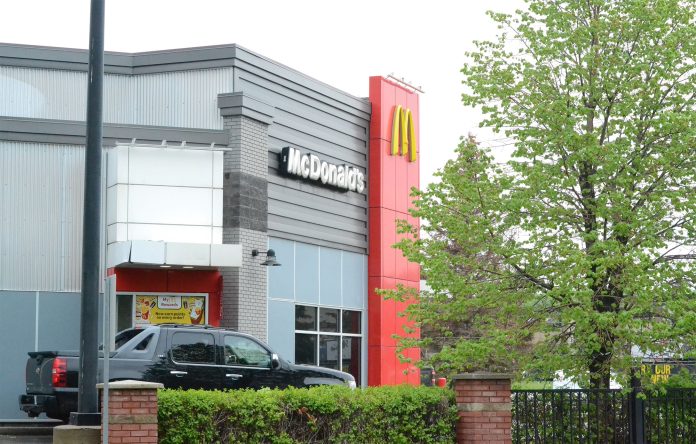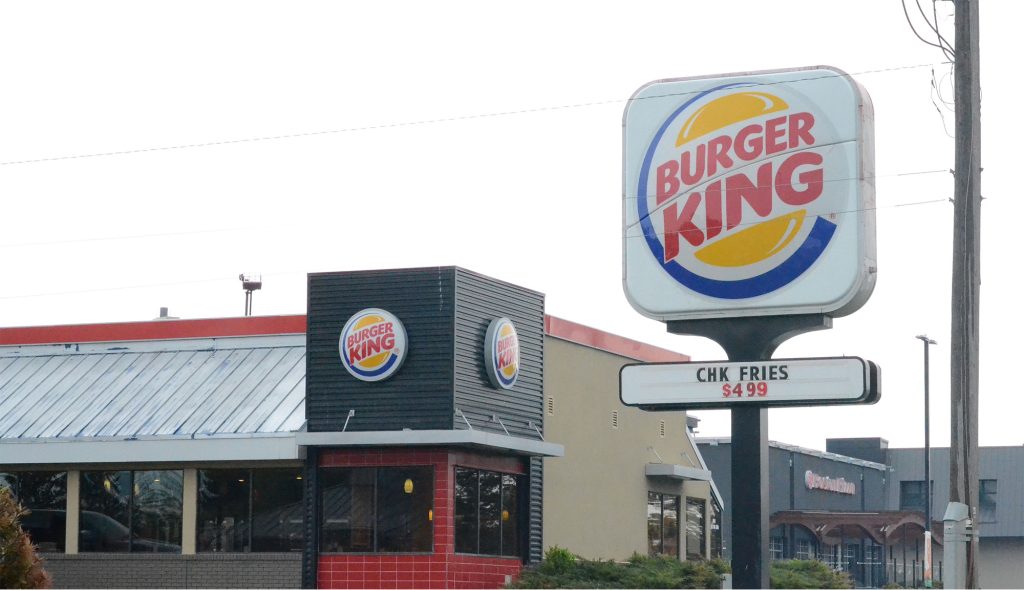
A few weeks ago, Cindy Smith was walking up to the Cornerstone McDonalds in Prince Albert to grab breakfast. She was alarmed to find out that she had to ring a doorbell.
At first, she simply thought the door was broken. After conversations with a manager, she found out that the doors were locked in order to prevent homelessness and drug activity inside of the restaurant.
“Denying access, it’s just too prejudicial. It sends the wrong message and it could escalate to violence,” she said.
“All of these red flags are going off in my head.”
Smith said she was concerned about safety issues. If the doors are closed, she said, it could be a fire hazard, and that the only door you could enter is right by the drive-thru.
The Prince Albert Daily Herald spoke to a man who identified himself as a manager of the Cornerstone McDonalds over the phone, but he would not state his name.
He admitted that the doors were locked one-way and that you could still exit the building like normal. When asked why they were locked from the outside, he said he was “not allowed” to say.
The man also said that the doors are now entirely unlocked.
Smith said she understands that they don’t want drugs entering the restaurant, but that locking the doors isn’t the right solution. She suggested having a security guard or calling a community van who can re-direct people to shelters.
“If they were continuing to perform those behaviours, I would definitely boycott because I think it’s unjust.”
McDonalds isn’t the only fast food restaurant being criticized for its response to homelessness and addictions.
For Dave Marion, it’s more about a lack of response.
Two weeks ago, he and his 13-year-old son stopped at the Burger King on Second Avenue West after his baseball game in Shellbrook. The pair were driving through the city before heading home, north of Kinistino.

Marion said when he went into the washroom, there was a man washing his clothes in the sink and using the hand dryer to dry them. He also noticed a needle beside the faucet.
Another couple eating there told him there were also two people using drugs in the women’s washroom, he said.
“It could have been the opposite. It could have been (my son) who wanted to use the washroom. If I didn’t need to go in, then he could have been exposed to that,” said Marion.
“That’s dangerous. Somebody could have poked themselves with a needle laying around like that.”
Marion said there was a sign on the door asking customers to grab a key to use the washroom, but that the door was left unlocked.
“I just wish that the mayor and his councillors would do something about this type of situation,” he said.
“They’re going to have to decide who they want going through Prince Albert. I don’t live there, but I do my business there, I do my shopping there, and if they’re going to have that element running around doing whatever they want, then I’m just going to bypass Prince Albert.”
The Prince Albert Daily Herald contacted Mayor Greg Dionne several times to respond to Marion’s concerns. Each time, he said would call back when he had the time to do an interview, but didn’t.
The Herald also reached out to both Burger King Canada and McDonalds Canada for comment on both of these incidents, and never heard back.
Marion said that Prince Albert’s poverty crisis is being left unaddressed, and that people dealing with addictions shouldn’t have such easy access to drugs in the first place.
“This is just something that seems to be accepted – but I won’t accept it.”

